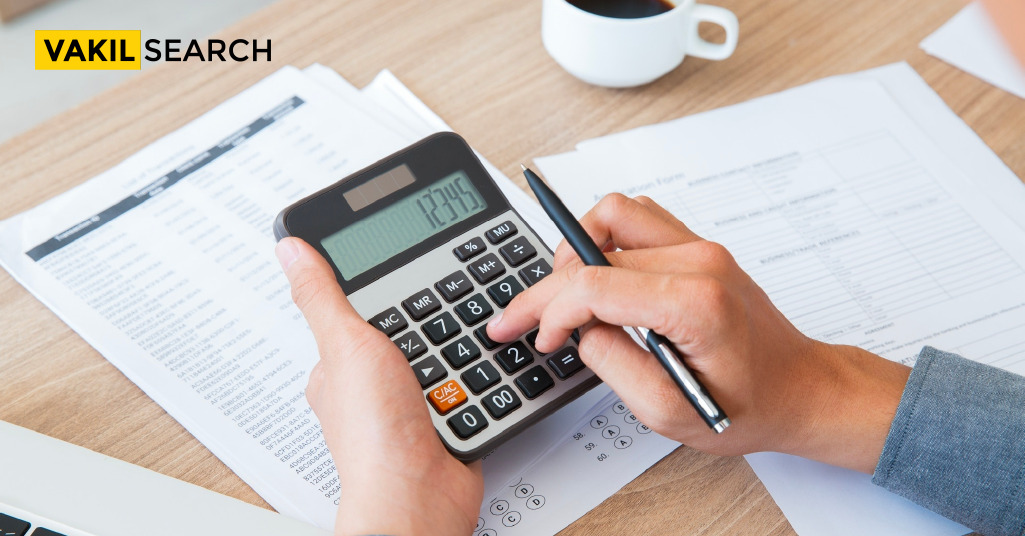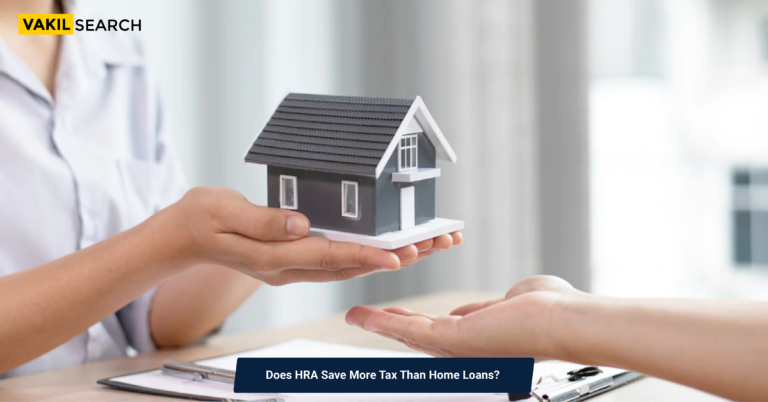HRA is provided to employees for paying house rent. The purpose of this blog post is to provide an explanation of the HRA exemption calculation.
Overview:-
The House Rent Allowance (HRA) is a component of salary that is paid by employers to employees to help them meet the cost of rented accommodation. The HRA is exempted from tax under the Income Tax Act, of 1961. Let’s discuss HRA Exemption in this article.
In order to avail of the House Rent Allowance exemption, the employee must meet certain conditions, such as furnishing a Rent Receipt, and the amount of exemption is subject to a maximum limit.
The HRA(House Rent Allowance) exemption is a valuable tax benefit that can save you a significant amount of money if you are staying in rented accommodation. Read on to find out everything you need to know about the HRA exemption in India!
What is HRA?
House rent allowance (HRA) is a benefit given to employees in India. It is provided by the employer and it is paid directly to the employee’s bank account or into his/her salary account. The amount of HRA depends on the number of years an employee has worked for an organization.
This money can be used only for paying house rent or mortgage repayments and not for any other purpose like getting food or paying electricity bills etc. The amount of HRA depends on how much you earn in a year and your income tax bracket.
HRA Exemption
House Rent Allowance (HRA) is a component of an individual’s salary that is exempted from tax. The exemption is available under section 10(13A) of the Income Tax Act, 1961. The amount of exemption is calculated based on the individual’s place of residence, i.e., whether the individual resides in a metro city or a non-metro city.
The benefit of HRA exemption is available to salaried individuals who are paying rent for their accommodation. The exemption is not available to those who are living in their own house or are living rent-free. The exemption is also not applicable to income earned by self-employed persons such as doctors, lawyers, etc.
Who is Eligible for House Rent Allowance Exemption?
The HRA exemption is applicable to all employees who are working in the private sector, government sector, or a company that has been granted tax exemption under Section 80C of the Income Tax Act. This exemption is also applicable to self-employed individuals and professionals who have been granted tax exemptions under Section 80CCD(1) of the Income Tax Act.
If you are eligible for HRA, then you need not pay any tax on this amount while filing your return. However, if you do not receive HRA, then you will have to include this amount in your taxable income and pay taxes accordingly.
Here are the rules that apply to HRA Exemption Calculation:
- Your HRA cannot be more than 50% of your income.
- 50% of your salary can be exempted from tax for HRA if you live in a metro city in India.
- If you live in a non-metro city, you will get a tax Exemption on 40% of your salary.
- You can get a tax exemption even if 6ou live with your parents by signing a rental agreement with them and paying the rent every month.
If you want to do an HRA exemption calculation, you can use the feature provided by vakilsearch. You just have to provide basic information such as the city you live in, the salary you receive, the HRA you receive, etc.
Tax Benefits of HRA
House Rent Allowance (HRA) is a component of an employee’s salary that is provided to help cover expenses related to rented accommodation. Employees can claim tax benefits on the amount they pay as rent for accommodation each year under Section 10(13A) of the Income Tax Act. Here are some key points about HRA tax benefits:
Eligibility: To be eligible for the tax benefit on HRA, you must be a salaried individual, have the HRA component in your salary structure, and stay in a rented accommodation.
Exemption Limit: The exemption on your HRA benefit is the minimum of the actual HRA received, rent paid annually reduced by 10% of your salary, 50% of your basic salary (if you live in a metro city), and 40% of your basic salary (if you live in a non-metro city).
For Self-Employed Individuals: Salaried individuals can claim HRA tax benefits under Section 10(13A). Self-employed individuals can also claim deductions and tax exemptions on HRA under Section 80GG, provided they meet certain conditions.
Claiming Exemption: You can claim HRA exemption by submitting your monthly rent receipts to your employer or while filing your income tax return.
Tax Implications for Homeowners: The benefit of HRA can also be claimed if you own a house and are claiming a deduction for principal payment under Section 80C and interest deduction under Section 24.
It is essential to understand the rules and conditions associated with HRA tax benefits to maximize your savings and make informed decisions about your housing arrangements.
Documents required for House Rent Allowance(HRA) Exemption
HRA Exemption is a provision in the Income Tax Act, of 1961 that allows employers to deduct tax from employees’ salaries.
In order to claim the exemption, the individual must submit a copy of the lease agreement, rent receipts, and proof of payment of rent to the employer. The employer will then calculate the amount of exemption and include it in the employee’s salary.
Documents required to get House Rent Allowance Exemption in India are as follows:
- Information about the PAN card of the Landlord and other details that are required.
- If the paid rent is more than 1 lakh per year, you will also have to submit the property owner’s PAN card copy.
- Identity Proofs of both, the landlord and the tenant.
- You need to provide the rental property’s address.
- Proof of residence in India such as rent receipt or utility bill dated within one month before submitting the application for HRA exemption in India.
Along with these documents you might also be asked to submit some other information based on your job profile, income, and the duration for which you’ve rented the apartment. If you want any help with filing an application for House Rent Allowance exemption, you can get in touch with Vakilsearch. They also offer a free HRA Exemption Calculator. This tool allows you to calculate how much tax exemption you can get based on your salary, rent, and other basic information.
House Rent Allowance Exemption Calculation
HRA exemption calculation is the process of calculating House Rent Allowance exemption as per the salary structure and applicable tax slabs. The process is simple and easy to understand, but it can be a bit confusing at times.
Here’s the process for House Rent Allowance Exemption calculation:
- Calculate the actual rent paid and subtract 10% of your salary from it.
- Calculate the actual amount of HRA given to you.
- And calculate 50% of your salary (in a metro city) or 40% of your salary ( in a non-metro city)
- Out of these three, the minimum figure is Eligible for HRA tax exemption.
If you want to prevent any confusion, you can calculate House Rent Allowance Exemption simply by using the HRA Exemption Calculator provided by Vakilsearch.
Conclusion
The HRA is a tax deduction available to employees in India. The employer will deduct the total amount of HRA from the employee’s salary and pay it directly to the employee as per his or her entitlement.
HRA Exemption Calculation is important to determine how much of your income will be exempted from tax. You can follow the step-by-step procedure to calculate that. But if you want to prevent any errors, you can use the HRA Exemption calculator feature. It will provide you with the exact calculation without any errors.
FAQ
What are the 3 Essential conditions for HRA exemption?
The three essential conditions for HRA exemption are: the employee must be a salaried individual, have the HRA component in their salary structure, and stay in a rented accommodation.
How much HRA exemption can I claim in India?
The amount of HRA exemption you can claim in India depends on the actual HRA received, rent paid annually reduced by 10% of salary, 50% of basic salary (if you live in a metro city), and 40% of basic salary (if you live in a non-metro city). The least of these amounts is considered for deduction.
How Can we claim 100% HRA?
You can claim 100% HRA if you pay rent for your residential accommodation and meet the eligibility criteria for HRA exemption. The exemption on HRA is the minimum of the actual HRA received, rent paid annually reduced by 10% of salary, 50% of basic salary (if you live in a metro city), and 40% of basic salary (if you live in a non-metro city).
What is the Online HRA limit for 2023?
There is no specific online HRA limit for 2023. The HRA exemption limit is determined based on the actual HRA received, rent paid annually reduced by 10% of salary, 50% of basic salary (if you live in a metro city), and 40% of basic salary (if you live in a non-metro city).
Can I claim HRA without a rent receipt?
No, you cannot claim HRA without a rent receipt. To claim an HRA exemption, you need to submit proof of rent receipts to your employer or while filing your income tax return.
Helpful Links:











